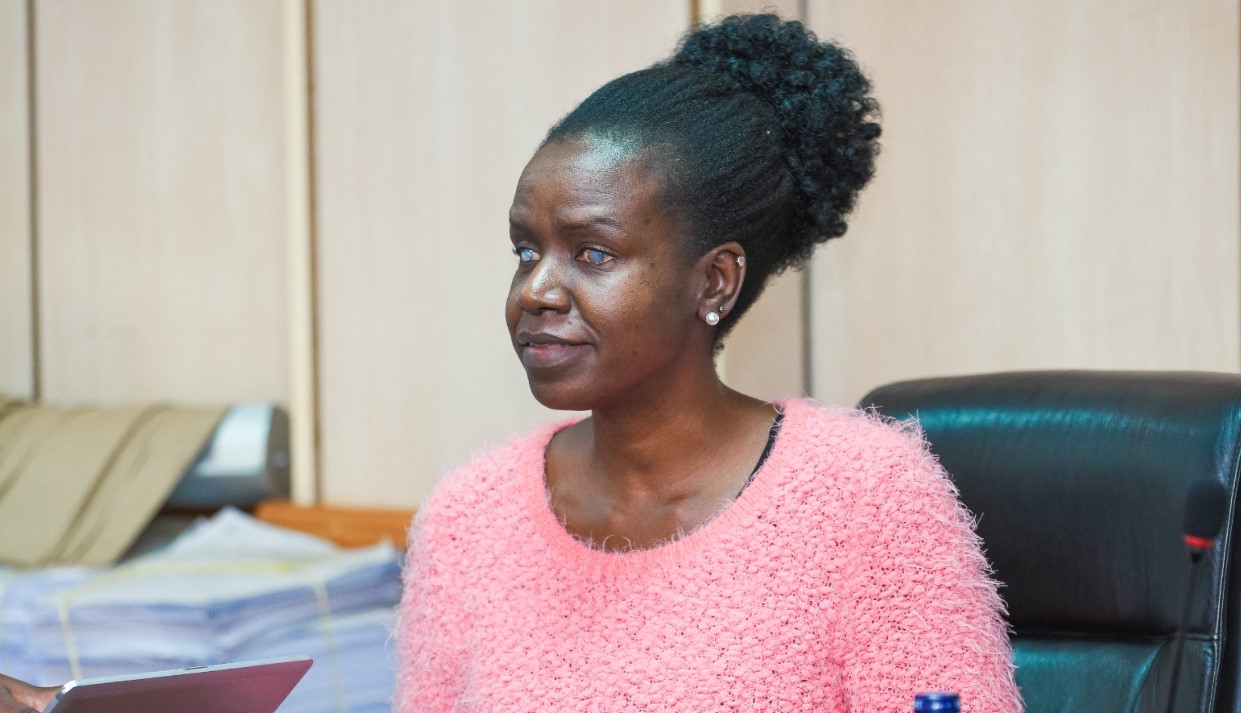Investing in eye care could boost economy by Sh33 billion - report

Sight loss affects many aspects of life, leading to lower income, job loss, reduced school performance, increased caregiving duties, mostly for women's mental health challenges, and higher risks of accidents and illnesses.
Millions of Kenyans are living with vision problems that could be avoided or treated, according to the Value of Vision report launched during the United Nations General Assembly (UNGA).
The study, commissioned by the International Agency for the Prevention of Blindness (IAPB), Seva Foundation, and Fred Hollows Foundation, shows that investing in eye care can transform lives and significantly boost the economy.
More To Read
- António Guterres sounds alarm over worsening global refugee crisis
- 139 nations back UN General Assembly call for Israel to respect UN sites, international law
- Prof Phoebe Okowa sworn in as first Kenyan judge at the ICJ
- Kenya’s Phoebe Okowa elected to serve as judge at International Court of Justice
- Senate demands answers on Sh419 million Deaflympics budget
- The right way to clean and care for your lenses
The report estimates that approximately 7.5 million Kenyans are affected by preventable sight loss.
By implementing six practical and cost-effective eye health measures, the country could see annual economic gains of Sh33 billion from an investment of just Sh3.3 billion. This represents a tenfold return, with Sh1,300 generated for every Sh130 spent.
Sight loss affects many aspects of life, leading to lower income, job loss, reduced school performance, increased caregiving duties, mostly for women's mental health challenges, and higher risks of accidents and illnesses.
“For Kenya, a Sh3.3 billion investment in delivery would generate annual gains of over Sh33 billion,” the report highlights.
Nominated Senator Crystal Asige, the Secretary General of the Kenya Disabled Parliamentarians Association, emphasised that eye care should no longer be overlooked.
“It is a matter we can no longer ignore. The research is clear; investing in eye health brings significant returns for our entire country. As decision-makers, we must commit to implementing proven, cost-effective eye health priorities, like providing vision screenings in schools and distributing reading glasses where they are needed most,” she said.
Victor Opiyo, President of the Optometrists Association of Kenya, said solutions are straightforward and affordable.
“With the right investment, we can not only restore vision for millions of Kenyans but also unlock billions for our economy. Eye health is not a luxury; it is essential to education, productivity, and the dignity of our people,” he noted.
He added that prioritising vision ensures children can attend school fully, workers retain their livelihoods, and families are not overwhelmed by care responsibilities.
Peter Holland, CEO of IAPB, pointed out that sight loss is a global challenge with wide-ranging effects.
“We have clear solutions. Most sight loss can be prevented with simple and affordable interventions like expanding sight tests, providing glasses, and improving cataract surgery. This World Sight Day, we urge everyone, from governments and businesses to schools and families, to make eye health a priority,” he said.
The report lists six key strategies to prevent vision loss: community vision screenings for early detection, immediate provision of reading glasses, expanding the eye health workforce, improving surgical team productivity, removing obstacles to care such as cost, distance, and stigma, and enhancing cataract surgery outcomes through better training, technology, and post-operative care.
Experts say that adopting these priorities could generate Sh19.7 billion from increased productivity, Sh5.3 billion from higher employment, add 8,628 years of schooling, and save Sh3.3 billion in caregiving costs.
Without these interventions, millions of Kenyans will continue to suffer preventable sight loss, which hinders education, limits job opportunities, and burdens families.
Top Stories Today













































